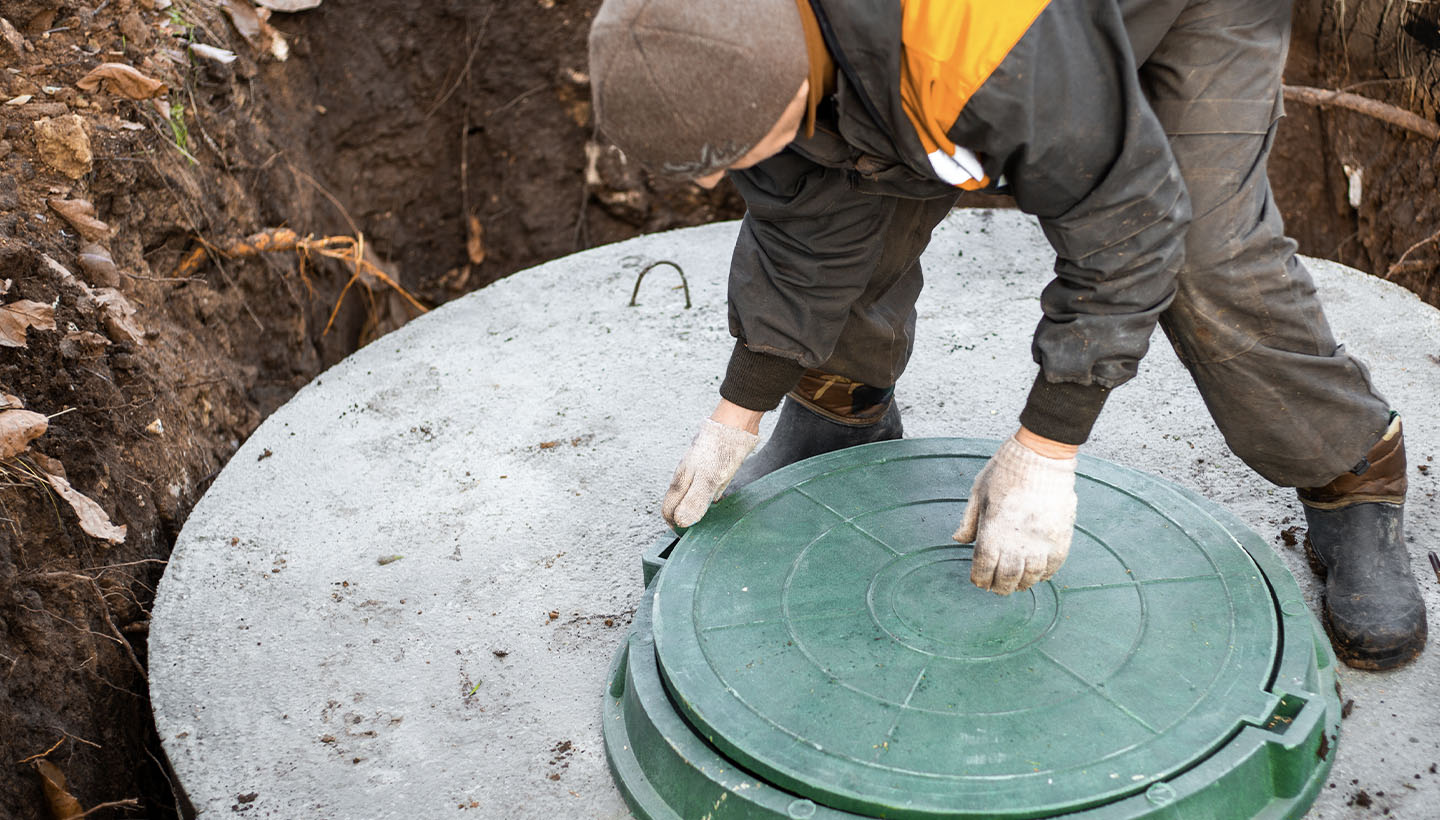
How to Become a Certified Septic Inspector
One of the quickest and most lucrative certifications you can earn as a home inspector is your Septic Inspection and Dye Testing certification! Some states might not require certification in order to inspect septic systems, however, having one will help you stand out to lenders, insurance companies, and potential clients. With this experience, you’ll be able to find more work and can charge more for your inspection services. Here are the four steps to becoming a certified septic inspector and taking your career to new heights.
Steps to Become a Licensed & Certified Septic Inspector
1. Find Your State’s Septic System Inspection Requirements
Every state has different requirements for their home inspectors, from licensing to different types of certifications that you should have. Find out if your state requires a license from any specific authority in order to inspect septic systems, and what the certification requirements entail.
Routine septic inspections, cleanings, and placements are all regulated by environmental agencies and individual states’ Departments of Health. The requirements likely differ state-to-state, which is another reason why you should look into those requirements before you begin your certification, and get familiar with them.
If you’re required by your state or employer to have this certificate, or just want to stand out from the competition by arming yourself with useful experience and education, read on!
2. Complete Your Septic Inspection Certification Education
Septic inspection certification is a quick continuing education course if you’re looking to beef up your resume, and earn your chops in septic inspection. In the course, you will learn what a septic field (or drain field) is, how to assess plumbing drain systems and septic tank system components, and learn two main types of onsite wastewater (septic) treatment system inspections.
You will also learn about the different types of septic systems, including:
- Conventional Septic System
- Intermittent Sand Filter
- Recirculating Sand Filter
- Aerobic Treatment Units
- Mound Systems
- Absorption (ETA) Systems
This course is only 3 hours long, so it is a relatively easy certification to add to your roster. Not a minute will go to waste!
3. Purchase Your Septic System Inspection Equipment
Once you’re certified, the fun begins. Like any trade or specialized business, there are tools of the trade you are going to need, and equipment that makes your job easier. Here is a short list of some of the kinds of tools you’ll want to equip yourself with to get the job done:
Locators
Often, septic tanks are located underground and made of concrete or polyethylene. While you may be able to find one by a pipe that sticks out of the ground roughly 10-25 feet away from the home (depending on rules set by local health department), you won’t always get so lucky with visual cues. Here are some tools that can help you locate the tank.
- Metal detector
- Flushable or electronic septic tank locator
- Soil probe rod
- Steel probe rod
- Septic tank probe rod
Septic Inspection Tools
Once you find the system, there are some handy tools out there to help you take a closer look at the inlets, outlets, baffles, tees, and walls of a septic tank. You may also need to prepare a way to test the surrounding soil and
- Sewer inspection camera
- Sludge Judge Sampler System
- Soil tests
4. Network & Establish Your Septic Inspection Business in Your Area
Now that you’ve got the skills and the tools, all you need now is the connections. Networking is an important part of your inspection career whether you work for a company or are self-employed – put yourself out there!
There are lots of good ways to make yourself known in the real estate field via social media, connecting with agents, or following job leads through bigger companies. Don’t be afraid to let your coworkers, friends, and your homeowner clients know what you offer. You never know who will need your services. Connecting with others is the name of the game, and a great way to find success as an inspector.
Frequently Asked Questions (FAQs) About Septic System Inspections
What is the Average Septic Tank Inspector Salary?
According to Salary.com, the national average salary for a Septic Tank Inspector hovers around $45,500*. Of course, this rate varies by state and experience. This is a service you can offer with your home inspections as an add-on, allowing you to charge extra in some cases. Or, you can take advantage of this certification as a way to take on jobs outside of your typical work: a sweet side hustle. Septic tanks need frequent inspection, so there will be no shortage of homeowners in need of your services!
*March 2023 data
Do I Need a License to Inspect Septic Tanks & Systems?
The answer here depends on the state you reside in. Some states have regulations and requirements, many do not. But septic system inspectors who have gone through nationally recognized programs and certifications will be more valuable to potential clients, insurance companies, and lenders! Not only that, but a certification is an easy way to make more money as an inspector, whether you offer septic inspection as an add-on service or do these inspections alongside your usual business.
How Long Does It Take to Become a Certified Septic Tank Inspector?
Our septic inspection certification course is only 3 hours long! It’s easy to work into your daily schedule or even complete it in an open afternoon.
How Much Does It Cost to Become a Certified Septic Tank Inspector?
Septic Inspection courses are usually very affordable. Most often, the cost will fall between $100-200. At AHIT, we offer a Nationally Recognized General Septic Inspection/Dye Testing Course for a $125.
Check Your State Requirements and Get Started
You know what it takes, and the good news is you have it, too! The pros to earning your septic inspection certification are abundant, so don’t let the opportunity go down the drain! Check out your state requirements and get started on your Septic Inspection Course today.




